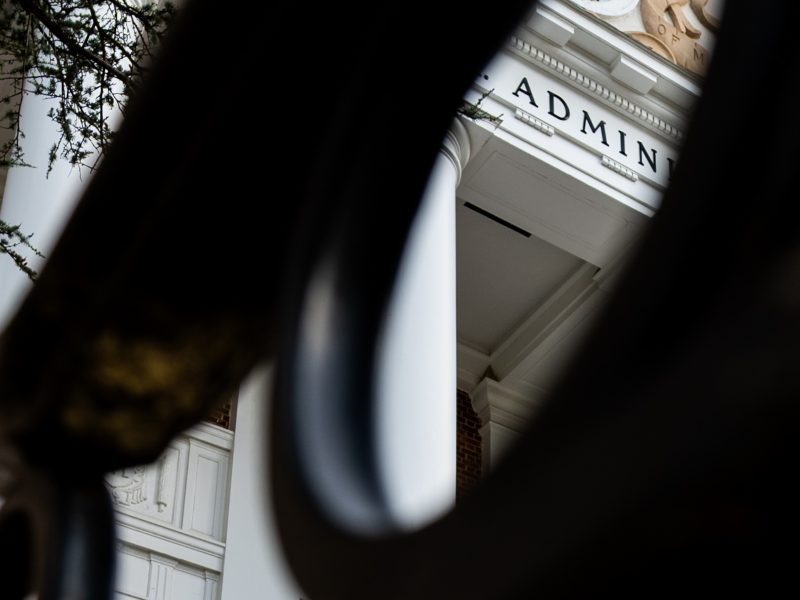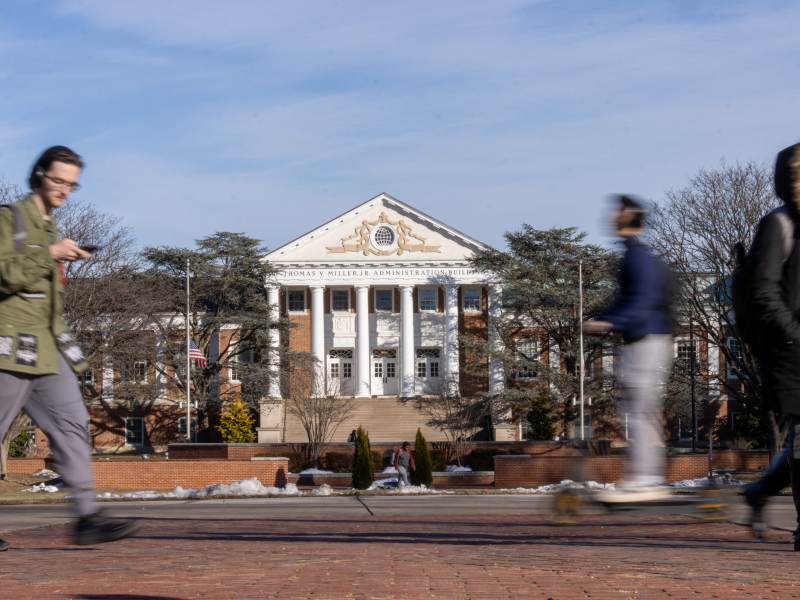Views expressed in opinion columns are the author’s own.
The University of Maryland’s Department of Transportation Services is advertising “Safety Starts With You” as part of its Safety Awareness Month campaign, with most events and messaging focused on micromobility users on campus. Certainly, walking, cycling, and driving around campus is stressful and dangerous. But, we didn’t get here by accident — we got here by choice.
This university neglected its cycling infrastructure for decades, and lagged behind hundreds of universities in establishing protected bike lanes. Instead, university transportation administrators chose shared lane markings, or “sharrows”, which years of academic research indicates does nothing for the safety of vulnerable road users.
It is within this university’s power and considerable budget to design and implement safe solutions for all road users, no matter their chosen mode of transportation.
Finger-wagging emails won’t fix our lack of infrastructure. Fortunately, many cities and peer institutions can serve as models for this university, and cost-effective and equitable solutions can give micromobility users the necessary facilities to improve safety for everyone.
Those improvements shouldn’t take as long as the university claims. Pop-up bike lanes are a widely accepted transportation planning tool, as are temporary bike lanes with movable barriers. The wide southern edge of McKeldin Mall is the primary connection to seven academic buildings and the main library. The popular corridor is full with micromobility vehicles despite numerous “Walk your Wheels” signs. A pop-up two-way micromobility lane with signage and physical separators could reduce conflicts between micromobility owners and pedestrians.
Similarly, roads that the campus already plans bikeways for, such as Preinkert Drive, could be done quickly with the same movable concrete barriers.
Furthermore, micromobility storage and infrastructure is terribly inadequate on campus, particularly for electronic devices. Campus does not offer micromobility storage solutions that comply with its fire safety instructions. Those directions state that storing batteries outside, in heat, direct sunlight, cold, or in unheated garages for extended periods — including a 10 hour work or class day — will shorten the battery’s life and can cause the lithium-ion fires that the university hopes to prevent. This forces owners to choose between risking disciplinary action or unsafe storage.
Campus has far too few sheltered bike racks for its more than 1,700 registered e-bikes and scooters, and only one swipe card protected “commuter lot” in the bowels of Regents Drive Garage for students and workers on a 1,300-acre campus. It goes without saying that publicly reported thefts are common on campus, as are vandalism and accidental damage.
Secure bike lockers or lids are widely implemented at dozens of universities, often for a rental fee, providing improved security and protection from the elements to micromobility users. There’s no excuse for our campus to be so far behind our Big Ten peers such as the University of Washington, University of Wisconsin, and the University of Michigan. If card-accessible facilities are not available in campus garages due to time and funding, many cities and universities offer bike valet services with great success.
Arizona State, the University of Arizona, and recently, the University of British Columbia offer bike lockers full time, and more schools make it a regular fixture of sports events. This university offers the accommodation on Maryland Day.
It’s disingenuous of this university to claim “safety starts with you” when the best solution it can offer its micromobility commuters is all the inconveniences and frustrations of driving, but with the addition of dangerous congestion and the risk that our only transportation will get stolen or damaged. As a cyclist, I know in my bones that someday it might be my body on the pavement, and I take my safety seriously.
I wish my employer did, too.
Kate Dohe is the director of digital programs and initiatives at the University of Maryland Libraries, and a bike commuter of about 15 years in the Washington, D.C., metro area. She can be reached at katedohe@umd.edu.



